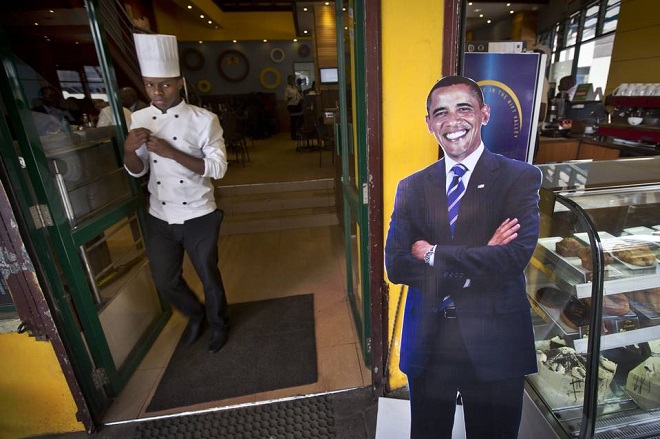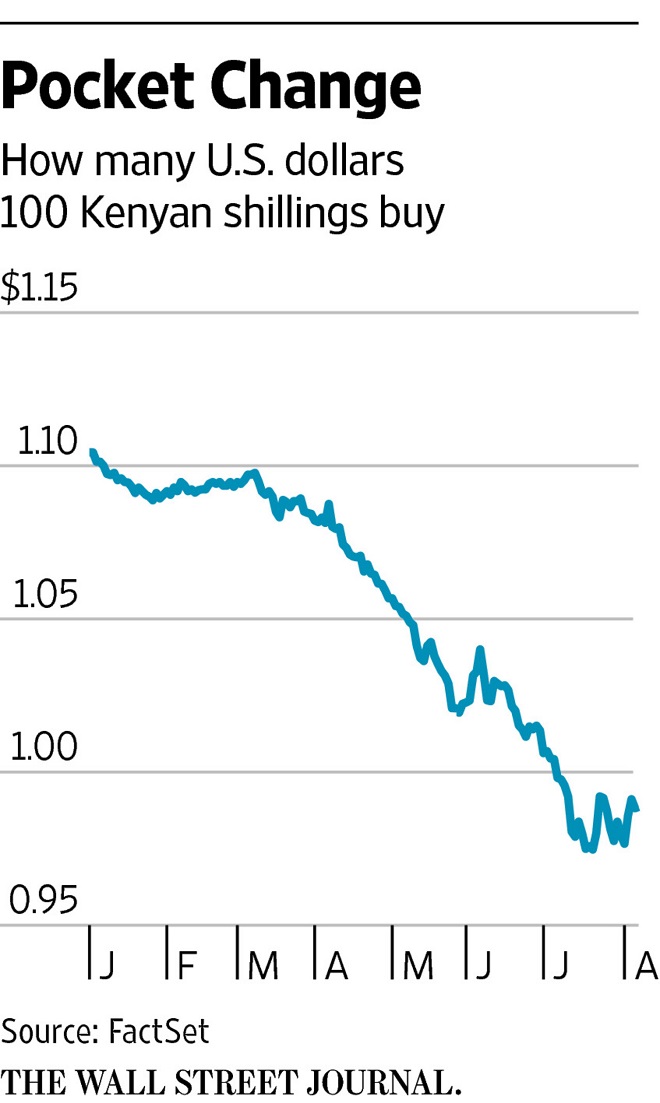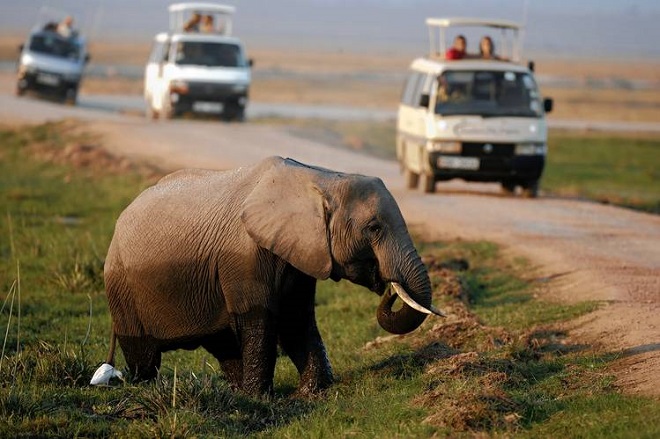
Wednesday August 12, 2015
Glow of Obama visit fades amid concerns about falling currency, economy and secukjrity Kenya has been hit by a glut of woeful news that is spotlighting the economy’s fragility, after a week of touting its credentials as a regional powerhouse during President Barack Obama’s visit. Currency tumult and security concerns in what is considered one of Africa’s most dynamic countries shows how the continent continues to struggle against swift and unpredictable changes in economic thrust and investor sentiment. Kenya’s currency, the shilling, has shed nearly 11% of its value against the dollar this year. The central bank on Wednesday maintained its tight monetary policy, holding rates at 11.5%. The bank said rate increases of a total of three percentage points in June and July had yet to fully feed into the pricing of the currency. The tumbling shilling and surging inflation are spelling trouble for Kenyan households. Some staples cost 20% more now than at the beginning of the year, according to the national statistics bureau. “I’m spending more than I used to a few months ago for less,” said Joyce Kinoti, a mother shopping for baby food at the discount Uchumi supermarket in Nairobi’s Westlands, a bustling commercial area. To be sure, currencies have fallen further in African petro-economies hit by sliding oil prices like Nigeria and Angola. But Kenya is a net energy importer, meaning it can’t blame its woes on lower global oil prices. A shaky domestic economy is the culprit.
“Domestically, the shilling has been upsetting a lot of people. The shilling has been weakening for almost a year,” said John Ashbourne of Capital Economics. “I don’t think there’s a real reason to expect that it will reverse from that trend.” The World Bank recently upgraded its outlook for Kenya’s economy, predicting it would grow 6% this year. Yet, the first-quarter growth rate of 4.9% disappointed observers and raised concerns that the optimism wasn’t accounting for persistent troubles. A long-term drop in tourism is partly driving the shilling’s slide. Islamist attacks near tourism hot spots along the pristine Indian Ocean coast have kept vacationers away, meaning less of the dollars, euros and pounds they might have spent are making their way to Kenya.
Buffeted by a collapse in tourism revenue, Kenya Airways this week reported a record annual pretax loss of nearly $300 million. Finance Minister Henry Rotich said the airline, which is part-owned by Air France-KLM, may require a state bailout of as much as $500 million. Meanwhile, the enthusiasm felt on the streets of Nairobi during Mr. Obama’s historic visit contrasts with the gloom in most corners of the real economy. Business sentiment has been sliding since the beginning of the year, according to Razia Khan,Standard Chartered’s chief Africa economist. “Economic activity appears to be losing momentum,” Ms. Khan said in a note. And just as the International Monetary Fund has held up Kenya as one of Africa’s economic success stories, the country’s auditor general, Edward Ouko, said in his annual report published last week that about a quarter of government spending last year was unaccounted for. More than half wasn’t spent transparently, he said. Of total spending in the latest fiscal year, just 1.2% got a clean bill of health in the auditor general’s report. “The report reveals the mess that is our public finances and the profligacy that has accompanied higher tax receipts,” said John Githongo, executive director of the Kenya Ni SiSi! nongovernmental organization and a prominent anticorruption activist. Mr. Githongo, who became one of Africa’s most famous whistle-blowers a decade ago when he uncovered a previous public-spending scandal in Kenya, said the fact the auditor general released such a report shows progress. But the findings are disturbing, he said, and reveal that in this seemingly rising corner of the continent, corruption remains a major threat to economic potential. “Corruption and mismanagement of public finances do pose a risk to overall attractiveness of Kenya as an investment destination,” Mr. Githongo said.


